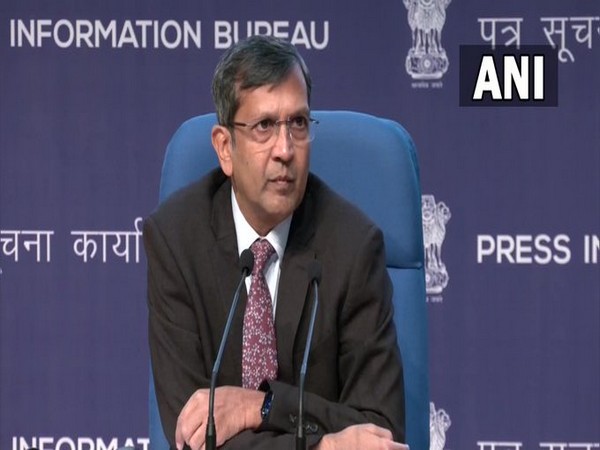As the third edition of the ‘No Money For Terror’ Ministerial Conference is beginning from Friday, India on Thursday said confirmation from China is still awaited while Pakistan and Afghanistan are not participating in the international event.
However, a total of 78 countries and multilateral organisations, including Ministers from 20 countries, have confirmed their presence at the two-day conference being organised on November 18 and November 19 here in the national capital.
“A total of 78 countries and multilateral organisations are participating in the third edition of the ‘No Money For Terror’ Conference beginning from tomorrow (November 18),” said Dinkar Gupta, Director General, National Investigation Agency (NIA), India’s anti-terror agency which works under the Ministry of Home Affairs, while speaking in a press briefing.
Asked about the presence of Pakistan and Afghanistan in the conference, the NIA Director General said, “Pakistan and Afghanistan are not participating in this conference”.
On a query over the presence of China in the international event on terror financing, Secretary West (MEA) Sanjay Verma said “the participation of China is not yet confirmed”.
However, Verma clarified “China has been invited”.
Replying to another query about whether Pakistan was invited and did not come or it was not invited, Verma said, “China has been invited”.
Giving details of the event in the Curtain Raiser press conference on the third ‘No Money for Terror’ Conference, NIA DG said, “This is the third edition of ‘No money for Terror’ conference. The first was held in France in 2018… The second edition was organised in Melbourne, Australia in 2019.”
“India was offered to host the third conference but it could not take place in 2020 and 2021 due to Covid-19,” said Gupta.
Noting “this is a very crucial way to stop terror financing and activities”, the NIA DG said a total 72 countries along with multilateral organisations are participating in the event”.
“India would be the 73rd country taking part in the conference.”
He said Prime Minister Narendra Modi will inaugurate the conference and Union Home Minister Amit Shah will conclude the event and convey India’s determination in its fight against terrorism as well as its support systems for achieving success against it.
India will raise major issues like lack of universal consensus on laws regarding cybercrimes; weak control mechanisms of social media platforms and their misuse by terrorist and extremist groups, dark web, and crypto-currency in the international ‘No Money For Terror’ Ministerial Conference.
Crowdfunding; anonymous, decentralised, and untraceable nature of terror financing; effective multilateral and multi-stakeholder approach in identification and mitigation of threats of emerging terror-financing mechanisms; misuse of non-profit and nongovernment organisations as front structures for financing terror activities are among other serious agendas to be raised in the event.
This Conference aims to make progress in the discussions on combating terrorist financing held by the international community in the previous two Conferences in Paris and Melbourne. It also intends to include discussions on technical, legal, regulatory, and cooperation aspects of all facets of terrorism financing. It attempts to set the pace for other high-level official and political deliberations, focused on countering terrorist financing.
India will point out how additional challenges rise in terms of the inclusion and regulation of the private sector as well as the extension of technical assistance to smaller financial institutions.
India will also emphasize the cooperation among states carried out at the international, national, and regional levels which need coordinated responses from intergovernmental and national law enforcement agencies.
The focus of the conference will be on “more coordination” among all stakeholders.
The conference will further India’s efforts to build understanding and cooperation among nations in the fight against terror financing.
The hosting of this conference shows the importance being given by Prime Minister Narendra Modi-led Central government to the issue of international terrorism as well as its zero-tolerance policy against this menace and having discussions on this issue in the international community.
Globally, countries have been affected by terrorism and militancy for several years. The pattern of violence differs in most theatres but is largely engendered by a tumultuous geo-political environment, coupled with prolonged armed sectarian conflicts. Such conflicts often lead to poor governance, political instability, economic deprivation, and large ungoverned spaces. The involvement of a complaint State often exacerbates terrorism, especially it’s financing.
India has suffered several forms of terrorism and its financing over more than three decades, hence it understands the pain and trauma of similarly impacted nations. In order to display solidarity with peace-loving nations and to help create a bridge for sustained cooperation on countering terrorist financing, India has hosted two global events in October – the annual General Assembly of the Interpol in Delhi and a special session of the UN Counter-Terrorism Committee in Mumbai and Delhi. The forthcoming NMFT Conference will further our efforts to build understanding and cooperation among nations.
Discussions at the third ‘No Money For Terror’ Conference will be focussed on global trends in terrorism and terrorist financing, the use of formal and informal channels of funds for terrorism, emerging technologies and terrorist financing, and requisite international cooperation to address related challenges. (ANI)
Read More: http://13.232.95.176/

